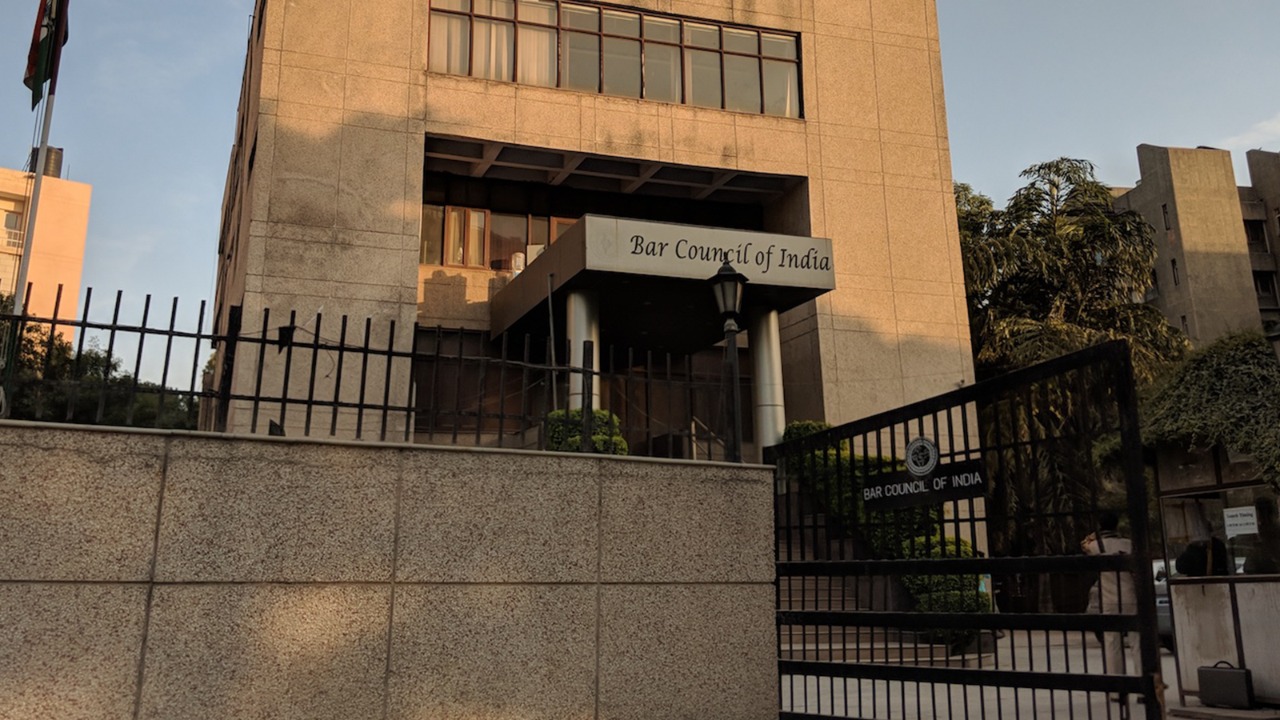4 Year Law Degree After Class-12: Ashwini Upadhyay Writes to BCI

Adv Upadhyay expounded that a 5-year BA LL degree impacts the confidence of students by teaching unfamiliar humanities subjects
Ashwini Upadhyay approached the Bar Council of India (BCI), submitting a letter urging for a four-year law program following the completion of Class 12.
Ashwini had previously approached the Supreme Court seeking a 3-year law course right after school.
In his communication, Upadhyay brought attention to the announcement made by UGC Chairman Jagdeesh Kumar, which permitted graduates of four-year bachelor's programs to pursue PhDs and NET exams in their chosen fields, regardless of their undergraduate majors.
He highlighted that despite the endorsement of four-year undergraduate programs in the New Education Policy 2020, the BCI had not reevaluated the conventional five-year BA-LLB program nor introduced a four-year Bachelor of Law (B.Law) program.
In his correspondence, Upadhyay compared the specialized education offered by four-year B.Tech programs in IITs to the comprehensive curriculum, including unrelated subjects like arts or commerce, in the five-year BA-LLB or BBA-LLB programs.
Upadhyay stressed, “Firstly, the length of time is not necessary to give a Bachelor degree, secondly, the prolonged period of 05 years is not suitable for students, thirdly, the 05 precious years is not proportional to study Law and fourthly, this puts excessive financial burden on the students to complete such a lengthy degree”.
The requirement to include humanities or commerce subjects in the five-year BA-LLB or BBA-LLB program posed challenges for students who had preferred science during their 11th and 12th-grade years. Furthermore, the five-year BA-LLB or BBA-LLB course contradicted the goal of providing essential career knowledge immediately after Class 12, compelling students into a prolonged educational commitment.
Upadhyay further emphasized the financial strain imposed by the five-year BA-LLB and BBA-LLB courses on middle and lower-class families, delaying students' contributions to their family's incomes. “Reducing the dual degree course to a single degree course will allow students belonging to the economically weaker sections of the society to pursue this noble profession from prestigious universities as it will reduce the fees and make it affordable for many”, Upadhyay highlighted.
He questioned, “If a person can become a legend of the bar by starting their law career in just 17 years, then why should the youth waste 01 additional years of their life in the 05 years integrated course and not start their career from a young age of 20-21 years?”. He stated that previously a three-year B. Law course allowed early entry into legal practice, citing examples of Mr. Ram Jethmalani and Mr. Fali Nariman. Given the reduced lifespan and voting age, Upadhyay argued that a four-year law course would better suit the younger generation and align with modern trends.
He outlined that many law aspirants took gap years to prepare for law entrance exams, and struggling with non-law subjects prolonged the five-year course, impacting students' confidence and well-being. Students unfamiliar with humanities subjects found it challenging to cope with subjects like History and Sociology in the BA-LLB program, leading to a loss of talent as bright minds sought legal education abroad.
Upadhyay noted, “The unreasonable 05 years B. Law Course has been set under the Pressure of Collage Management so as to make the most amount of money they could from the course. The Course fee of Private Law Colleges and even the National Law Universities is exorbitant and lower as well as middle class students find it very difficult to pursue Bachelor of Law with such exorbitant fees structure and that too for 05 years (10 semesters)”. He contended that law schools are abusing the New Economic Policy.
He further expounded, “Students are being cheated and they don’t even know it. Deceitfully, and that too in the name of education, parents’ hard-earned money is being drawn out of their bank accounts and into the treasury of management… And girls bear the biggest hardship of this situation. In a stereotypical family, which does not consider education to be paramount for girls, a significant fee for a prolonged period of time proves to be more of an incentive to not educate their children, especially girls”.
He referred to NLU Nagpur's curriculum, which showed that law-related subjects could be effectively taught in three to four years, suggesting that the duration of the five-year course might be arbitrary. Extending the course duration and charging fees during internship months imposed a financial strain on students, as colleges played a minimal role in facilitating internships.
According to Upadhyay, the current five-year tenure favored affluent students, contradicting the NEP 2020's goal of providing equal access to quality education. “The purpose of the Course is to provide necessary knowledge regarding a particular field and that purpose is satisfied by a 04 years B.Law on the lines of B. Tech. The 05 years Course should give a degree of LLB-LLM instead of BA-LLB”, he further added.
Upadhyay underscored the necessity for reform in legal education, advocating for a transition toward a four-year B.Law course to align with contemporary educational trends and economic realities.
He concluded his letter with the prayer, “Start 04 years B. Law Course like 4 years B. Tech Course conducted by the AICTE and like the 04 years BA, B.Com, B.Sc Graduation Courses started by the University Grant Commission in letter and spirit of the New Education Policy 2020”.
